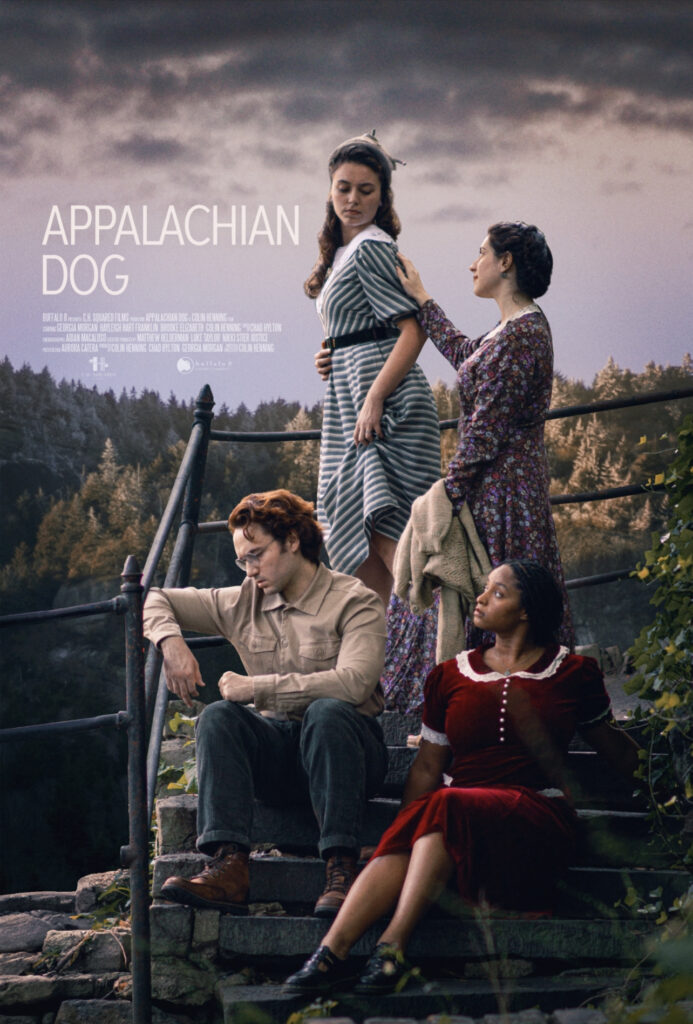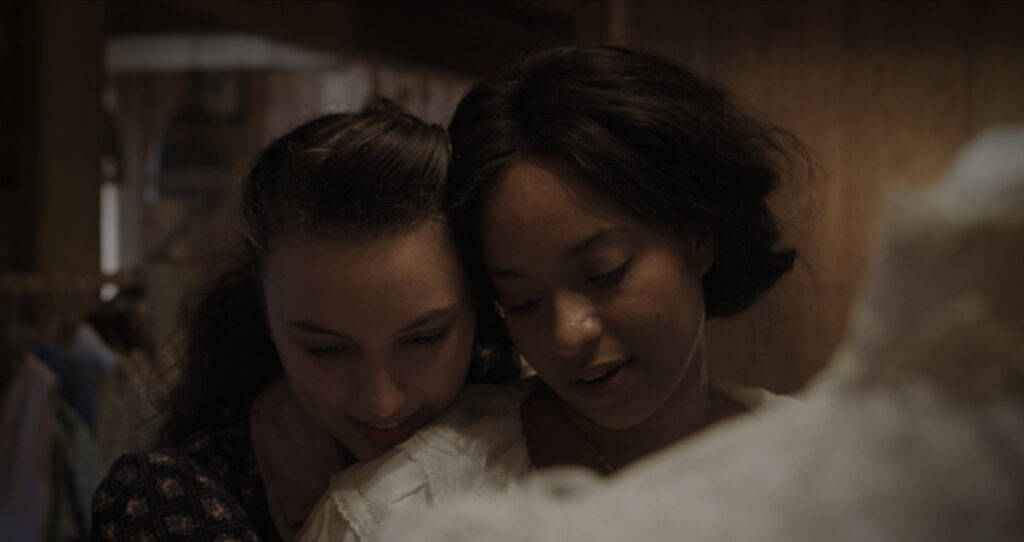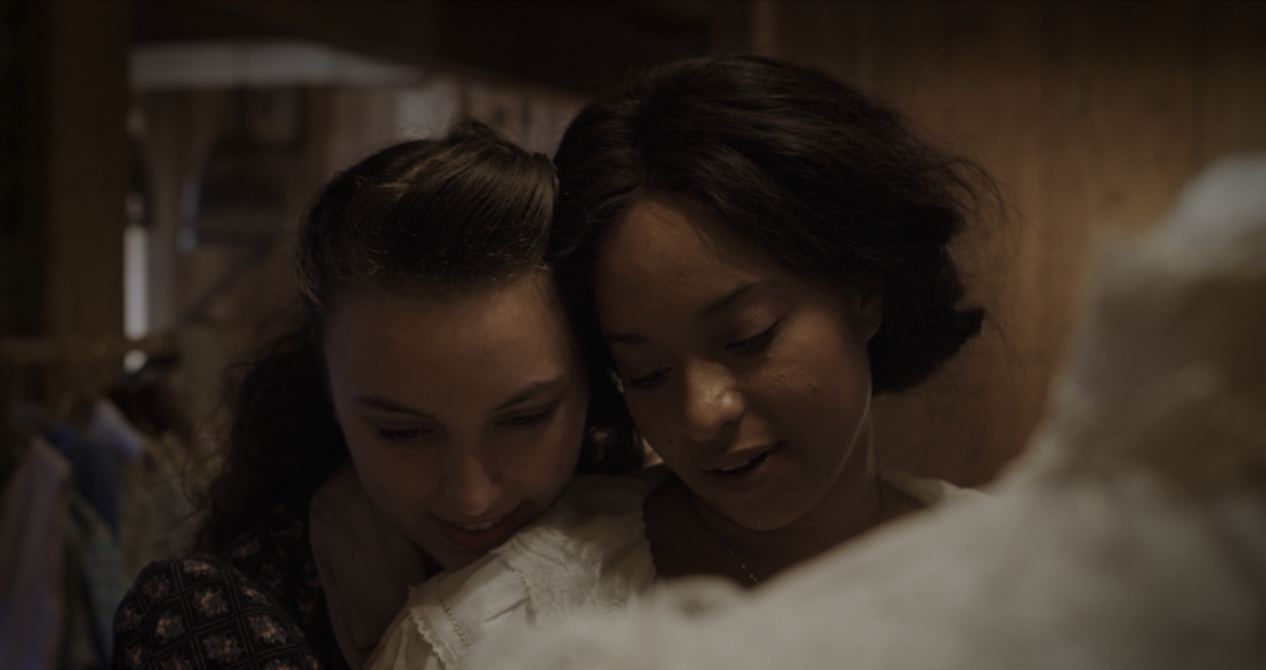The trauma-stricken casualties of war often go unmentioned in the history books. A common sentiment that has fascinated filmmakers for decades. Conflicts may have dissolved, but those involved must carry the consequences of it back to where they feel the safest. Colin Henning’s Appalachian Dog is one such story, and an engrossing one at that.
The year is 1946. Husband and wife Teddy Henry (Colin Henning) and Marion Henry (Georgia Morgan) are set for a reunion following the end of World War II. Marion eagerly awaits the occasion alongside Cate (Brooke Elizabeth) and her assistant Peggie (Hayleigh Hart Franklin), but as Teddy stumbles through the door, the evening (and the days to come) gradually sour. Teddy is simply unable to adjust to his new reality away from the front. Too much has changed for his liking, but for Marion, things have never been better.

Masked with a subtle humorous edge, Appalachian Dog is a lurid deconstruction of a rural household. The blocking, the characters, and the costumes make for an almost theater-like experience, as if it were all just a stage for us audience members to watch from a further point of view. Rarely does this kind of creative decision succeed, and it does have its hiccups every so often here as well, chiefly with where the conversational beats are concerned. Sometimes the dialogue just doesn’t click.
But even with the occasional slip-up, Henning’s screenplay remains an absolute playground of tension. The writer/director is perhaps the best example of this in the leading role. With Teddy, it’s like watching a powder keg on screen, with the fuse already lit. Contrasting him is Marion, whose troubling behavior doesn’t go unnoticed by those closest to her. The film delicately balances how much we get to know about everyone and frames the difficult marriage of Marion and Teddy as its crux. A clever misdirection for other, darker happenings.
Henning has masterful control of the period setting, as well as the film’s atmosphere. Small-town dramas have their signature charm, and like director Antonio Campos did in his Netflix hit The Devil All The Time, Henning showcases Appalachia in a significantly impactful way. It’s not just the family that’s feeling ensnared; it’s what’s around them that is suffocating them. A particularly off-putting montage about halfway into the film is an incredible reminder of this. The farm darkens; the colors fade. The trees, skies, and even the houses become repulsive. This rendition of the countryside proves a potent backdrop, charming at times, yet also giving way to an uneasy feeling of isolation—a testament to cinematographer Aidan Macaluso’s work behind the camera. Take any frame of the wilderness and hang it on your wall; that’s how striking the imagery is.
A complex and empathetic tale of post-war woes, Appalachian Dog matches great characters with a story that gets under your skin and stays there.


